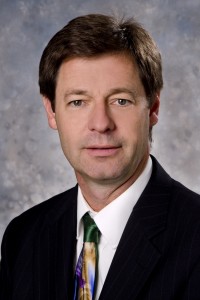By Aine Cryts
The HITECH Act, ICD-10, Meaningful Use. All of these government regulations have forced healthcare organizations to adopt technology quickly. Managing the demands of these regulations, while recruiting and retaining the right talent, keeps Todd Richardson, senior vice president and CIO at Wausau, Wis-based Aspirus Inc plenty busy. AXIS recently discussed healthcare IT staffing strategies with Richardson.
AXIS: Do you think there is a health IT staffing shortage, either nationally or in your geographic area? If so, what are your strategies for dealing with that?
Richardson: It really depends on the market you’re in. If you’re in a larger market, there are lots of folks available. It can be difficult filling positions here in rural Wisconsin, so a number of our positions take a while to fill. If you’re going to work here, you need to be willing to come into work when it’s 19 degrees and snowing like crazy.
The majority of our team members aren’t going to be right out of college. If we’re looking to fill a healthcare analyst role, we need someone with experience in healthcare, someone who can be brought up to speed quickly—especially if we were supposed to be live on a project 9 months ago.
If we’ve taxed our capacity, we tap the consulting world. We’ll pay more bucks for that “gun for hire,” but conversely, they won’t be a full time employee (FTE) with benefits who we’ll need to eliminate from staff when the project’s done. As we’re growing and partnering with more hospitals, we’ll grow our staff to a larger FTE number.
AXIS: How do you retain the right talent?
Richardson: Once they’re on board, we take care of our staff. We have a great management team who wants our employees to be happy. That said, we have a lot of work to be done. If you think you’re going to come in here and work 8 am to 5 pm Monday to Friday, take breaks and 2-hour lunches, then don’t take a job on my team. You have to derive satisfaction from delivering good results. You have to like to be busy, and you have to be self-directed.
AXIS: What are the top three challenges you face as a technology leader at Aspirus?
Richardson: First is demand management. Healthcare has been a laggard when it comes to technology. The HITECH Act, Meaningful Use, ICD-10: all of these regulatory things coming down the pike are forcing our hand. We’re forced to bring on technology quicker. We’ve got a long way to go and a short time to get there. Most companies invest 10% of their net revenue in technology; we’re investing in the 4.2% range. And we ride our systems hard; we’re not on the leading edge. We have a lot of work to do maintaining the systems we have.
Other parts of the hospital are trying to cut staff and automating tasks. What that means is, if the hospital is letting a $13-an-hour transcriptionist go, I may need to replace that transcriptionist with a $25- to $30-an-hour IT person to manage those systems.
Second is security, which continues and will always be a huge challenge. It takes a lot of money and experience to do things the right way. We need to hold our patients’ information in the highest degree of confidence.
Third is the need for systems that are stable. Doctors are relying on our systems, so it would be really catastrophic if they were seeing a patient and they couldn’t use our systems.
AXIS: Do you consider hiring IT professionals who don’t have healthcare experience?
Richardson: We brought on a manager for our systems team; that team focuses on servers and storage. He comes from a university setting in Fairbanks, Alaska. When it’s about servers, hardware, and configurations, healthcare experience is less relevant. What matters in that role is that the person has experience in UNIX or SQL or Windows.
When it’s a role that’s responsible for our clinical applications, healthcare experience makes more of a difference. We depend on our clinical applications, which require a more thorough understanding of healthcare workflow. For management roles on the clinical applications side, they need to be able to talk to directors on our teams and understand their problems; otherwise, they’re toast.
AXIS: What’s important here that I haven’t asked you about?
Richardson: You have to be careful and keep in mind that this healthcare IT staffing strategy works for Aspirus. All hospitals are different and have different systems that may require more or less support. It’s important to benchmark your facility against those with similar needs.
####
About Todd Richardson:
Todd Richardson is senior vice president of information technology and chief information officer at Aspirus Inc, a nonprofit, community-directed health system based in Wausau, Wis. The integrated system includes four hospitals in Michigan and three hospitals in Wisconsin, 50 clinics, and home health and hospital care, among many other healthcare services.
Richardson has a bachelor’s degree in broadcast journalism from the University of Nebraska (Lincoln), and received his CHCIO (Certified Healthcare CIO) certification through CHIME. He has been active at the state and national level in advocacy efforts around healthcare IT through his professional memberships in HIMSS and CHIME.
Get AXIS e-newsletters free. Subscribe here.





